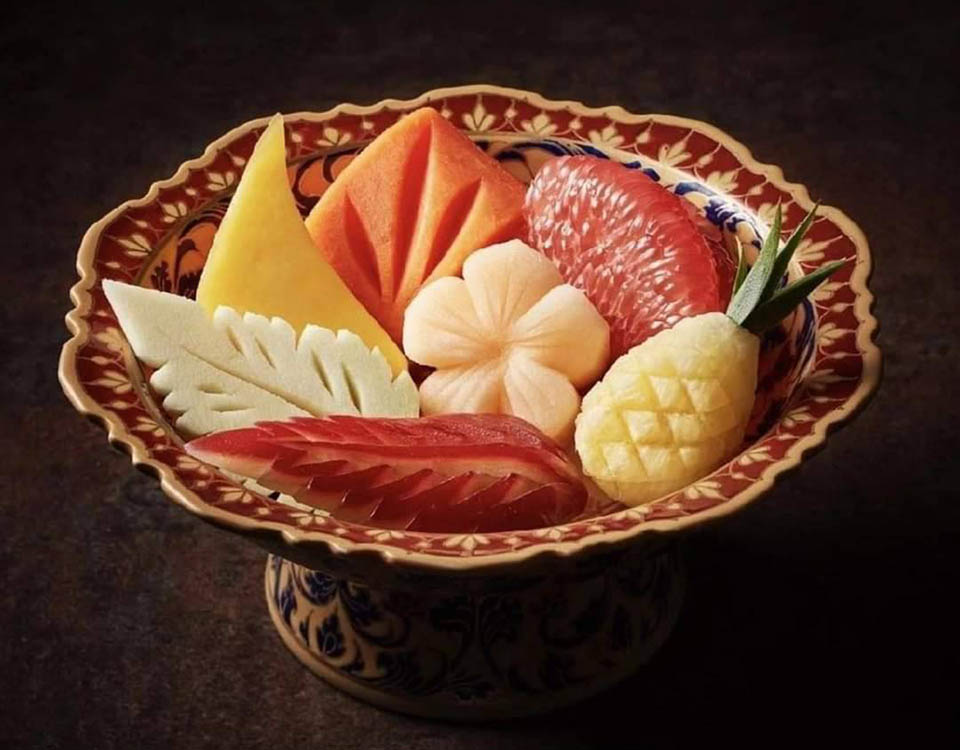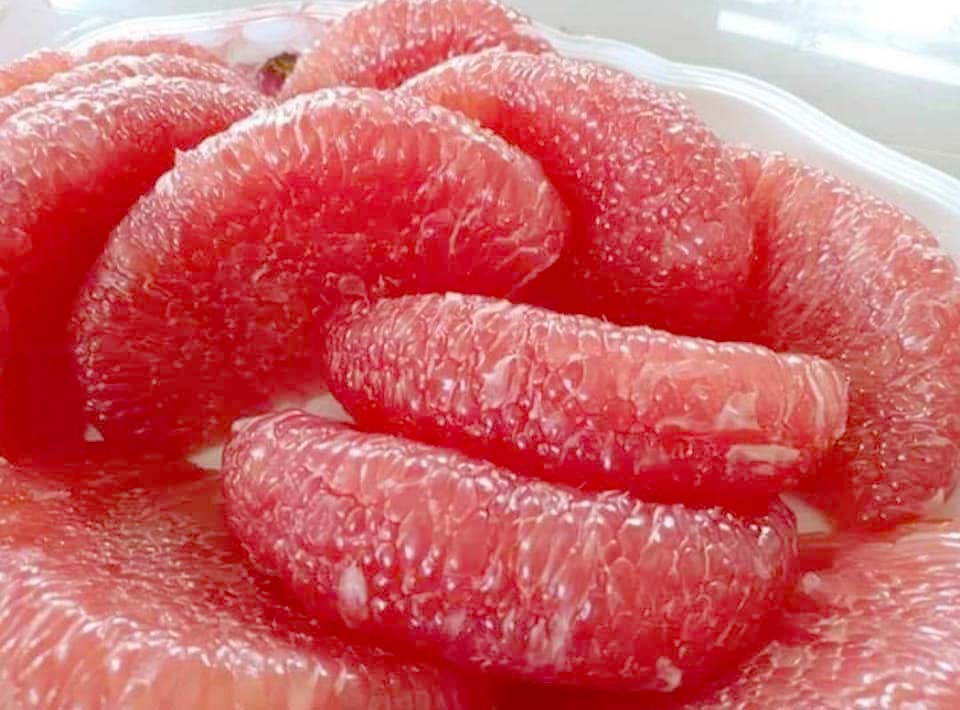
A type of pomelo locally grown in Nakhon Si Thammarat has been selected as one of the fruits to be served to economic leaders at this year’s APEC Economic Leaders’ Week, making it one of the ambassadors for Thailand’s food culture.
Sweet, red, and comes in a pointy top spherical shape, this is a fruit called Tubtim Siam Pomelo, a famous fruit grown in Nakhon Si Thammarat province.
The fruit, registered for geographical indication, has been selected from those around the country to be served to leaders of Asia-Pacific economies during the APEC Economic Leaders’ Week (AELW) on 14-19 November.
Tubtim Siam Pomelo for the AELW has been specifically selected from Kamsing Farm in Nakhon Si Thammarat. Farm owner Sopit Singboon, known for her inspiring role as a Smart Farmer, said he is delighted to have his produce be a part of the leaders’ reception. He said he believes his farm has been selected for organic farming and Good Agricultural Practices (GAP) certification, which gives his pomelos ruby-like red color and sweet taste.
“They have contacted me and told me that they want our fruit for APEC leaders. I am delighted to have our delicious fruit served to APEC leaders. I think, first of all, that our fruit is chosen because of its taste. Our pomelos are very sweet, and we farm them organically. You can see it for yourself at Kamsing Farm where each fruit is individually wrapped.”

Tubtim Siam Pomelo has been developed from Puko pomelo. Rich soil full of calcium in Pak Phanang district of Nakhon Si Thammarat helps change the fruit’s flavor profile from bitter to sweet, giving it the distinct red pulp, and helps the fruit grow larger, which results in a higher price. Tubtim Siam Pomelo is grown in around 480 hectares (3,000 rai) of farmland, generating some 1 billion baht each year through domestic sales and international exports, particularly to China.
The selection of Tubtim Siam Pomelo from local farms to the table of APEC leaders gives the fruit the role of a culinary ambassador. Ms. Sopit said she hopes this will allow Tubtim Siam Pomelo to be more widely known, which shall benefit the farmers, and encourage them to improve their standards.
“I deeply appreciate the chance that the produce from my farm gets international recognition. I will surely keep improving the standard to the highest level. I’d like to thank the government very much for supporting and promoting local goods. I would like to thank them for their support for the farmers.”
Tubtim Siam Pomelos are sold at high prices because they are grown only in limited areas, with sellers focusing more on export markets. However, the prices have come down as more farmers start to produce and sell them online, making this special fruit accessible to more people. Retail prices for Tubtim Siam Pomelo now range from 50 baht up to 250 baht per whole fruit. (NNT)
 |
 |
 |





